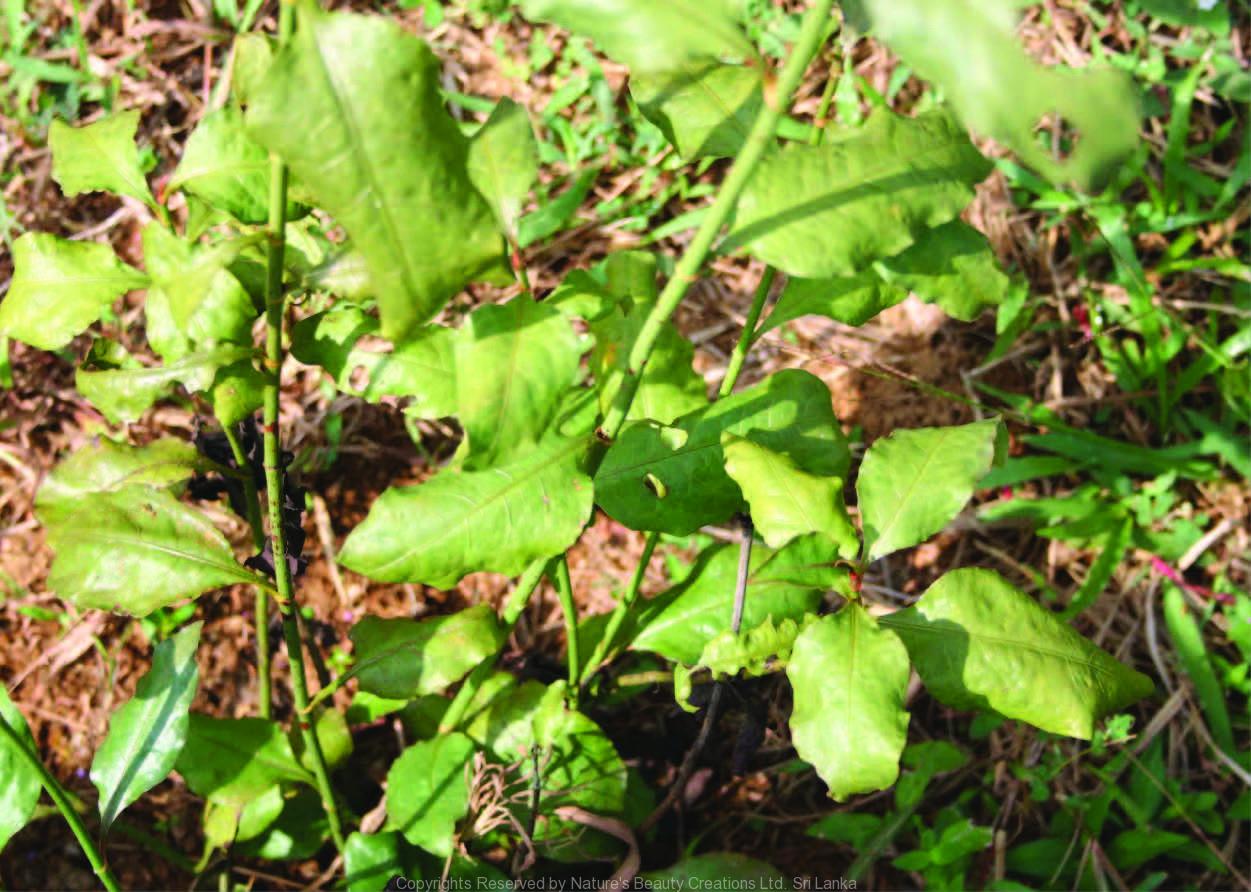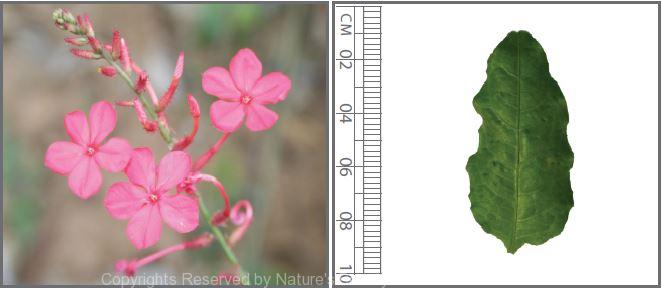

Traditional Knowledge
Useful plant parts :
Seed and root
Uses in traditional medicine :
- Finely ground seeds in dhomba seed oil is applied on healing bones to strengthen the muscles
- Used to treat rheumatism, paralysis, leprosy, secondary syphilis, leucoderma and scabies
Scientific Research
Chemical constituents:
Naphthoquinones: plumbagin and its derivatives, elliptinone, dihydroflavonol: plumbaginol and sitosterol, stigmasterol and campesterol from plant
Bioactivity :
Alcohol extract of roots: increases the effectiveness of radiation therapy in cancer treatment; acetone and ethanol extract of leaves: antifertility activity in females
Clinical:
References : Devi, P. U. et al., (1994), In vivo tumor inhibitory and radiosensitizing effects of an Indian medicinal plant, Plumbago rosea on experimental mouse tumors, Indian Journal of Experimental Biology, 32(8), 523-8. Dinda, B. and Chel, G., (1992), 6-Hydroxyplumbagin, a naphthoquinone from Plumbago indica, The International Journal of Plant Biochemistry, 31(10), 3652–3653. Dinda, B. et al., (1994), A dihydroflavonol from Plumbago indica, Phytochemistry, 35(4), 1063-1064. Kaewbumrung, S. and Panichayupakaranant, P., (2012), Isolation of three antibacterial naphthoquinones from Plumbago indica roots and development of a validated quantitative HPLC analytical method, Nat Prod Res, 26(21), 2020-3. Mathew, N. et al., (2002), Macrofilaricidal Activity of the Plant Plumbago indica/rosea In Vitro, Drug Development Research, 56, 33–39. Panichayupakaranant, P. and Tewtrakul, S., (2002), Plumbagin produc- tion by root cultures of Plumbago rosea, 5(3), 228-232. Sheeja, E. et al., (2009), Antiovulatory and estrogenic activity of Plumbago rosea leaves in female albino rats, Indian J Pharmacol, 41(6), 273-7. Solomon, F. E. et al., (1993), Toxic effects of crude root extract of Plumbago rosea (Rakta chitraka) on mice and rats, Journal of Ethnophar- macology, 38(1), 79–84.
Copyrights Reserved By
Natures Beauty Creations




